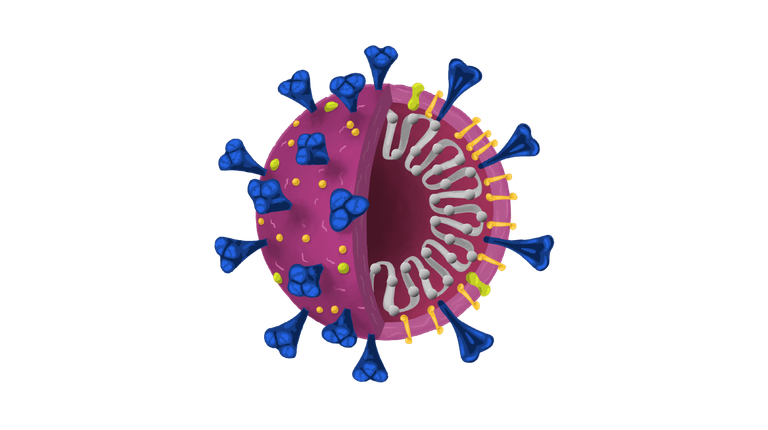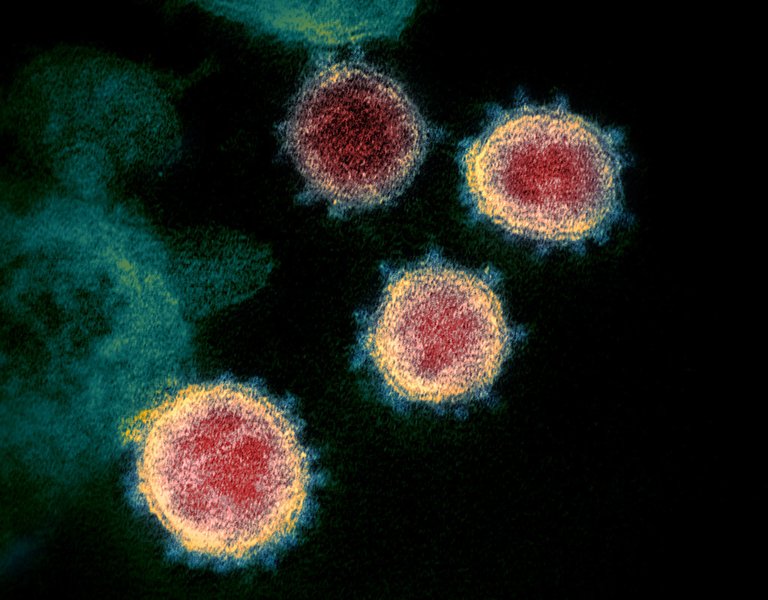COVID 19 and the Risk Factor of Causing Cancer
The year 2020 was a terrible one for us all, because the Covid-19 virus pandemic led to lots of losses from economical, social, business, and most importantly loss of lives. Actually, we have been able to defeat the virus to a reasonable extent but we haven't recovered from the after effect of the virus and so any thing that has to do with the virus catches our eyebrow and this was why this topic "Possible cancer-causing capacity of COVID-19: Is SARS-CoV-2 an oncogenic agent?" published in Paper on May 23, 2023 caught my attention. In reading everything written on the paper, one question I kept asking myself was "Can being diagnosed with SARS-CoV-2 (Covid-19) increase the risk of being diagnosed of cancer?"
Before you start to worry your head too much, there are a lot of carcinogenic substance around the world of which tobacco cigarrete is one of but then, not all smokers will have lung cancer. In fact, most smokers might come up with other diseases and conditions but not cancer of the lungs, so this means that even if we say that SARS-CoV-2 is Oncogenic, it is not a stamped conclusion that a person who had the virus would be diagnosed with cancer. Actually it doesn't work that way and that said, the basic answer is SARS-CoV-2 is Oncogenic. Let me state that there is nothing that can cause cancer, they can only increase the risk of getting cancer (Remember that cancer isn't one thing).
So we do not spread misinformation, Covid do not cause cancer, and the earlier I ring that bell the better for us all. Although nothing can directly be the cause of a cancer, some viruses can become so serious that they begin to create cancerous tissues. For instance, Human Papillomavirus (HPV) is linked to cervical cancer, Epstein Barr Virus which causes Mononucleosis has a link with Hodgkin Lymphoma. Vaccine for the virus has reduced the rate of cervical cancers in people who would have had the cancer as a result of its link with the virus. It is said that about 10% of cancers would not have occurred if a virus didn't kick them off.
Back to when I mentioned Yes to the question of covid-19 and its link to cancer. You see, it takes years before certain viruses can be linked with cancer, for instance it would take 5 years after infection with Epstein Barr Virus with no treatment to have a link with Hodgkin Lymphoma, and for Human Papilomavirus and Cervical cancer, it can take up to 20 years but Covid-19 virus is still a relatively new virus and it has just been in the block for just about 4 years, so we are still looking to see what would happen.
I am not saying that people who had Covid-19 and developed cancers have a link together, well maybe they have a common risk factor which is age but in other to check if there is a possibility between the virus and cancer, one would look at a population with Covid-19 checking for genetic factors that could cause the virus, and check if the same genetic factor has caused cancer in the shortest of time that Covid-19 has existed, in what we would refer to as the Mendelian Randomization Study.
Using the Mendelian Randomization Study there was a study that looked at the odds ratio of the increased risk of cancer with Covid-19. When an Odds Ratio is 1, it means there is a 50/50 association between the virus and the cancer with no confirmed association. If the odd ratio goes below 1, it mean there is a association is decreased with a factor causing the decrease in risk of the cancer and the virus. When the odd ratio is above 1 then there is a high risk factor for thee two. On this paper, there was only one odd ratio above 2 for stomach cancer with the ratio being 2.9. While we might say this is high, it is still low when comparing it to cigarette and lung cancer at a ratio above 8.
So why is there always a correlation between viruses and cancer? The answer is simple. Viruses colonizes the cells so they can be able to use the cell's resources to replicate. In doing so, they destroy the cells but some viruses do not kill these cells even when they are damaged. They dampens the cell's ability to check if the cell's DNA is damaged so the virus can keep using it but in doing this, the likelihood of the cells becoming cancerous increases and breaking news, the SARS-CoV-2 virus does this to cells.
SARS-CoV-2 has been seen to lower p53 levels in cells which is a tumor suppressing gene. In the research, blood samples of Covid-19 patients were examined depending on the severity and length. According to the study, people with mild and moderate infections had a lower level of p53 at 16 weeks after infection but the level returned to normal after 24 weeks while in patients with severe infections, the p53 levels didn't return to normal even after 24 weeks and a person with low p53 level for a long period of time is at a risk of developing a cancer.
Also, Covid-19 affects the Renin-Angiotensin-Aldosterone System (RAAS) which is responsible for regulating blood pressure, as well as increase the activity of Angiotensin II which is associated with pro-growth cancer cell signals. Also, the virus causes cells to mutate and divide when they are not expected to divide which can increase the risk of a tumor.
While the topic of COVID-19 and its potential link to cancer is intriguing and concerning, it's crucial to approach it with a balanced perspective. The information available suggests that COVID-19 might have oncogenic potential, but this is not a definitive conclusion. The research is ongoing, and it will take years to fully understand the long-term effects of the virus.
Read More
https://www.ncbi.nlm.nih.gov/pmc/articles/PMC10202899/
https://onlinelibrary.wiley.com/doi/10.1002/jmv.28722
https://www.ncbi.nlm.nih.gov/pmc/articles/PMC8818950/
https://www.ncbi.nlm.nih.gov/pmc/articles/PMC9361571/
https://www.cancerresearchuk.org/health-professional/our-research-into-the-impact-of-covid-19-on-cancer
https://www.mdpi.com/2076-2607/11/3/713
https://www.ncbi.nlm.nih.gov/pmc/articles/PMC10094438/
https://www.ncbi.nlm.nih.gov/pmc/articles/PMC9201997/
https://pubmed.ncbi.nlm.nih.gov/33737961/
https://www.ncbi.nlm.nih.gov/pmc/articles/PMC8596942/


Thanks for your contribution to the STEMsocial community. Feel free to join us on discord to get to know the rest of us!
Please consider delegating to the @stemsocial account (85% of the curation rewards are returned).
Thanks for including @stemsocial as a beneficiary, which gives you stronger support.